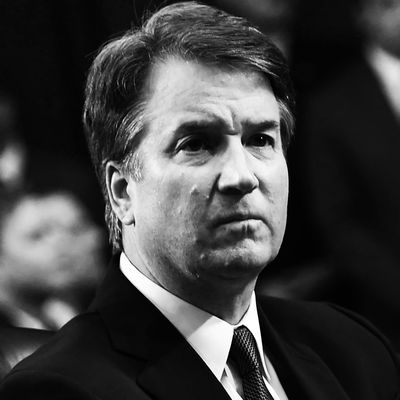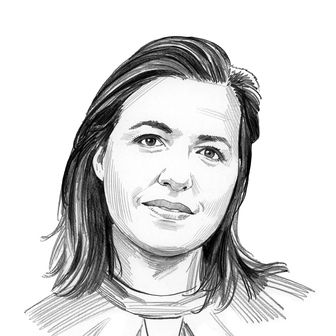
On Thursday, in response to a question from Texas senator Ted Cruz, Kavanaugh casually deployed a code word used by opponents of contraception: He referred to some forms of birth control as “abortion-inducing drugs.”
Kavanaugh was referring to Priests for Life, a case after Hobby Lobby that objected to the Affordable Care Act requirement that all health plans cover birth control. You might remember that the owners of Hobby Lobby claimed that emergency contraceptives and highly effective IUDs are actually abortion, and not birth control, because of the chance of a fertilized egg being blocked from implantation. (Science disagrees; there’s a chance the copper IUD might dislodge a fertilized egg, but even that’s moving the goalposts of both pregnancy and abortion.) The Obama administration had offered Priests for Life a workaround that involved filling out a form and not paying for the birth control, but they (and Kavanaugh) thought that was still too much complicity.
Defenders of Kavanaugh will likely say that he was simply describing the views of the people who brought the case. But what’s odd about that is that Priests for Life, being a Catholic group, objects to all contraception, not just the ones they think are abortion. Either way, the use of the phrase was telling, bringing into the mainstream the slippery conflation of birth control and abortion.
There was another, arguably more significant signal from Kavanaugh on reproductive rights that related back to birth control. Late Wednesday night, Senator Kamala Harris asked Kavanaugh about his stance on two cases that struck down birth control bans in 1965 and 1972 and formed the basis for the reasoning in Roe v. Wade. “Do you believe they were correctly decided?” she asked.
Kavanaugh wouldn’t give a straight answer. He would only say that “I have no quarrel” with a concurrence written by Justice Byron White in Griswold v. Connecticut — rather than the majority that found a right to privacy — because it applied precedent, and tried to deflect to what now-Justices Samuel Alito and John Roberts had said in their hearings.
That was a red flag to Eric Segall, a law professor at Georgia State University. “Justice White’s concurrence, which is the part of the opinion Kavanaugh said he agreed with, was a fact-specific opinion dealing only with the fit between the means and ends of the statute,” Segall told me. “It did not rely on the right to privacy upon which Roe was based. Moreover, Justice White dissented in Roe. A reasonable inference is that Kavanaugh agrees with White’s views on Roe, which White consistently opposed his entire career.”
Like so much Kavanaugh has said this week, it was a dog whistle.





